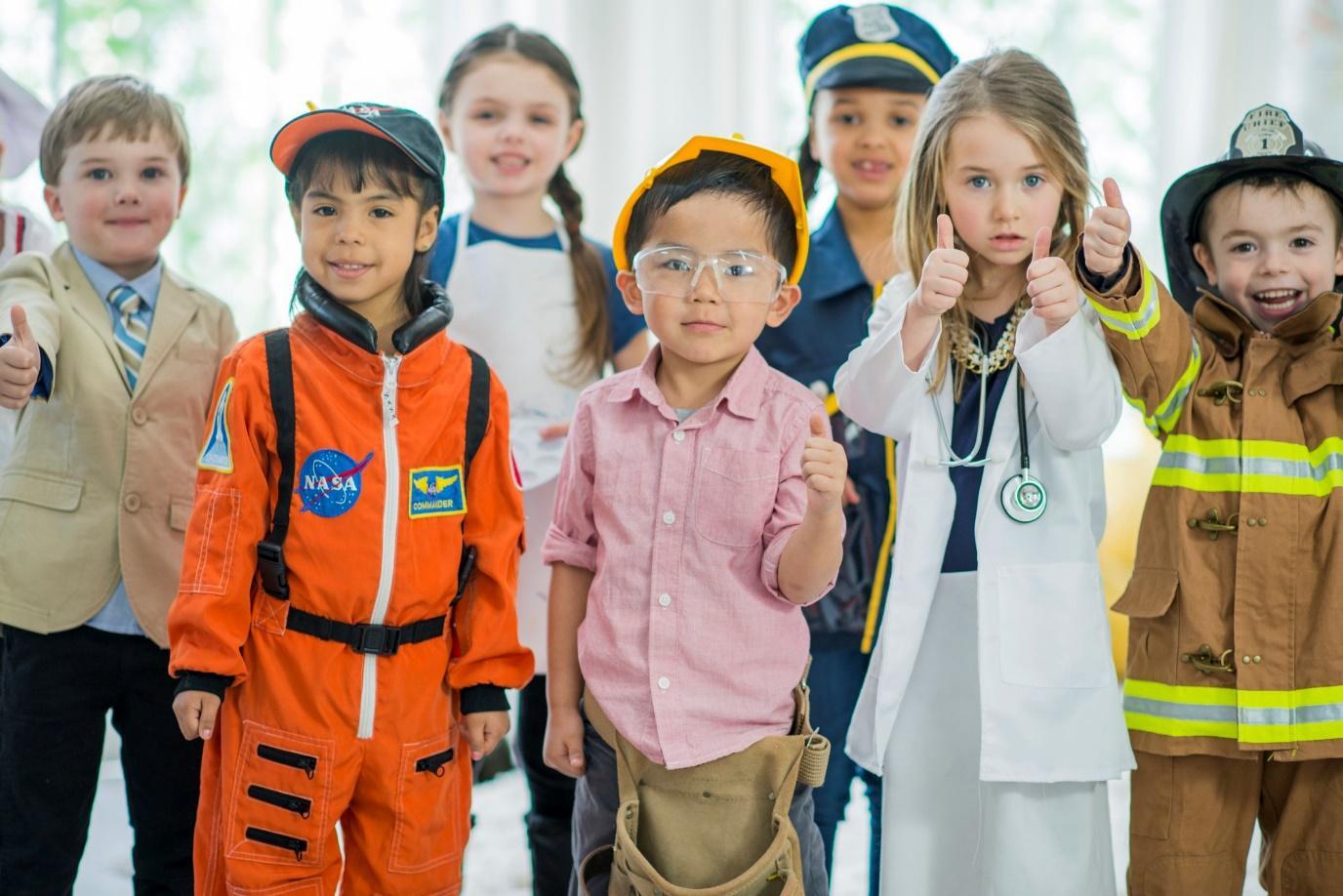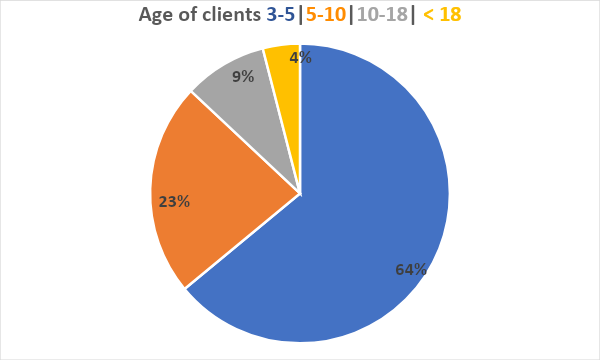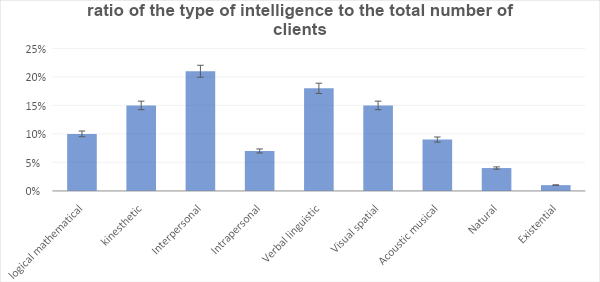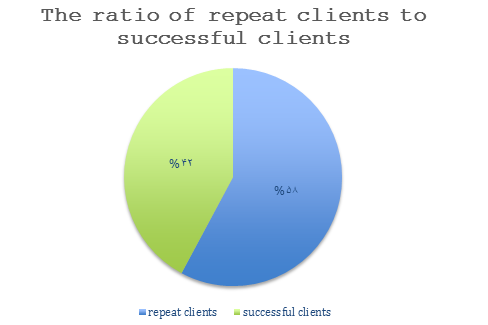Can the future of your children be predicted by conducting intelligence and talent tests for them?
Intelligence and aptitude testing can help you identify your intellectual strengths and weaknesses. This awareness can contribute to increased self-confidence, better learning, and making more suitable career choices. Furthermore, parents can provide the best guidance and upbringing for their children by conducting these tests.

According to studies conducted, numerous centers around the world focus on children's and adolescents' intelligence and talents. In this regard, the HoosheNik Institute has initiated its work with a focus on intelligence and talent testing for children and adolescents aged 3 and above. The institute's mission is to ensure that "all children and adolescents need to benefit from the discovery and nurturing of intelligence on the path to the future." Over the past five years, the HoosheNik Institute has worked with 974,569 children and adolescents in various cities in Iran and achieved results, which are elaborated on below.
Can children's intelligence and talents lead to specific progress in their lives?
It's important to note that having unique talents in children has a positive impact on both society and their future. Moreover, with these abilities, we can all contribute to positive and dynamic changes in society. Through collaboration and effort, we can assist in the progress and development of children and society as a whole. The unique experiences resulting from the combination of intelligence and talent are truly astonishing.
The combination of intelligence and talent can lead to unique experiences that promote the development and progress of children in various fields. In fact, talents are special abilities that children have an interest in and the capacity to engage in specific activities within a certain domain. These talents can encompass diverse areas such as art, science, sports, music, and languages.
Identifying children's intelligence and talents, what impact will it have on their future?
The role of parents in uncovering children's intelligence and talents is crucial. By observing children's behaviors and interests, parents can identify their abilities and talents and create motivation through encouragement and support. Recognizing children's intelligence and talents is very important and effective for their future. By understanding different types of intelligence, the best educational methods can be chosen for children, and their needs and abilities can be addressed. This understanding provides them with motivation and self-confidence to easily progress and improve.
Enhancing children's intelligence and talents leads to the development of skills and abilities in various fields. They will be able to further enhance their capabilities and interests, achieving better outcomes in their tasks and activities. Moreover, choosing a suitable career aligned with their talents and interests aids them in their endeavors.

Given the understanding of children's talents and intelligence, it is possible to excel in identifying their exceptional talents, which will transform into strengths. These talents can be developed through appropriate opportunities in their areas of interest, facilitating their growth and progress.
Overall, understanding intelligence and talent assessment for children is a priority in upbringing and education. By creating supportive environments and providing suitable opportunities, children's future can take shape in a positive and effective manner, allowing them to make the best use of their talents and intelligence.
The Latest Research from HoosheNik Institute
Recently, the institute has conducted further research on child upbringing. The summary of this research is as follows: Child upbringing is a complex and crucial process in personal growth and development.
Proper methods of child rearing help parents raise their children in a healthy, vibrant, and social manner by utilizing suitable methods and strategies. One of the aspects parents need to consider in child rearing is discovering the child's intelligence and talents. Indeed, the discovery of intelligence holds great significance in child upbringing.

Intelligence is a key factor in a child's development and progress, significantly influencing their life and success. Therefore, recognizing and discovering children's intelligence in the early stages of their lives can assist parents and educators in designing appropriate educational plans and providing the best opportunities for their growth and advancement.
Results of Five Years of Research at HoosheNik Intelligence and Talent Testing Institute
According to research conducted over five years on 974,569 children and adolescents, with 25 branches in various cities across Iran, including Isfahan, Rasht, Sari, Bandar Abbas, Mashhad, Tehran, Asaluyeh, Mazandaran, Gilan, Chaharmahal and Bakhtiari, and more, the following information has been gathered. Among the total number of visitors mentioned above, 750,418 were in-person visitors, and 224,151 were non-in-person visitors.

The chart below illustrates that among the total in-person and non-in-person visitors, the age group of three to five years includes 623,724 individuals, five to ten years includes 224,151 individuals, ten to eighteen years includes 87,711 individuals, and eighteen years and above includes 38,982 individuals.
According to studies, the chart below indicates that out of the total number of visitors, there are 204,659 individuals with interpersonal intelligence, followed by 97,456 with logical-mathematical intelligence, 146,185 with visual-spatial intelligence, 175,422 with linguistic-verbal intelligence, 146,185 with bodily-kinesthetic intelligence, 87,711 with musical-rhythmic intelligence, 68,219 with intrapersonal intelligence, 38,982 with naturalist intelligence, and 9,745 with existential intelligence.

Below the chart shows the number of in-person and non-in-person visits to HoosheNik Institute over time to track the trend of intelligence growth and families that ultimately managed to help their children achieve academic and career success through these efforts.

Conducting Intelligence and Talent Testing at HoosheNik Institute
The intelligence and talent testing process at HoosheNik Institute is carried out in two formats: in-person and non-in-person (online). The difference between in-person and online intelligence tests lies in the testing environment, types of questions, duration, validity, and ease of administration. While the in-person test has higher validity and takes more time, the online test is accessible from anywhere and is more convenient. The choice between these two formats depends on your circumstances and preferences.

HoosheNik Institute conducts intelligence and talent testing for children through two methods: in-person and non-in-person. In the in-person test, a 9-type Gardner intelligence test and analysis of children's drawings based on child psychology are conducted. The results of the test indicate the percentage of each type of intelligence among the 9 Gardner intelligences. Moreover, recommendations, conditions, and necessary classes to enhance these intelligences, which should be provided by parents for their children, are also provided.
The non-in-person intelligence test follows the same process and provides the same results as the in-person test, with the only difference being its online nature. The online intelligence test is conducted through online platforms such as Google Meet.
The Impact of Intelligence Assessment on Child Upbringing
Understanding children's intelligence can have positive effects on their upbringing. Having information about a child's intelligence allows parents and educators to choose better educational programs and align them with their needs and strengths. Awareness of a child's intelligence increases their motivation and self-confidence, enabling them to better cope with challenges. Moreover, tailor-made educational and nurturing plans are designed based on their intelligence level, aiding in better learning progress.
Recognizing a child's intelligence allows the identification and encouragement of their specific talents. Furthermore, understanding their intelligence can help improve their social interactions and communication with others.
Allow me to illustrate this with an example: When parents realize that their child is skilled in mathematics and enjoys solving complex problems like puzzles and riddles, they become aware of their child's particular talents in mathematics. With this awareness, they can implement strategies and specialized educational plans. For instance, they might enroll their child in various math competitions or specialized math courses.
By nurturing the child's mathematical talents and creating a supportive environment, parents can guide them toward greater success in this field and boost their self-confidence. These experiences and motivations drive the child to achieve further success through consistent practice and targeted goal-setting, enabling them to excel in their growth and progress.
Successful Research in the Field of Gifted Child Education
According to research conducted on the cnbc.com website, each child is born with more advanced skills in certain areas compared to others. Your child may have spatial strengths, such as the ability for abstract and three-dimensional thinking, or perhaps they excel in mathematics, analyzing problems logically, or scientifically investigating issues. Always pay attention to your child's natural talents and then assist them in nurturing their inherent abilities.
According to davidsongifted.org, intelligent young individuals are often not properly identified, leading to a lack of appropriate challenging education. Research shows that this can result in success or even dropping out of education. Studies indicate that 40 percent of gifted learners may not achieve high success.
Based on studies from creativitypost.com, every child is born with unique characteristics of abilities, including gifted children. For example, some children at very young ages exhibit remarkable skills in chess or playing a musical instrument. Other gifted children astonish us at early ages with near-superhuman abilities in theater, artistic talents, gymnastics, mathematics, reading, problem-solving, sports, or spatial awareness.
Source: hooshenik.com | Institute for Intelligence and Talent Research in Children

 icons at the top right corner of the subsection.
icons at the top right corner of the subsection.